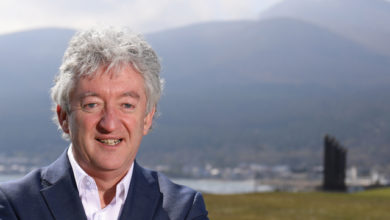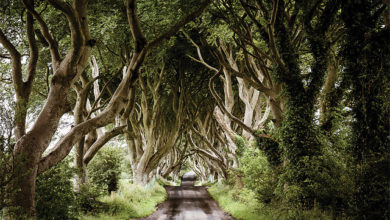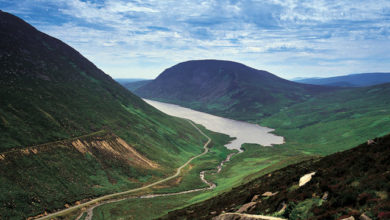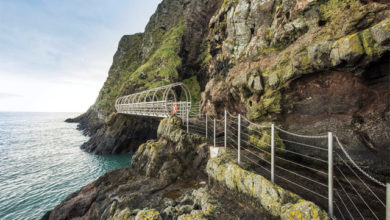NIAC: Skills and Brexit
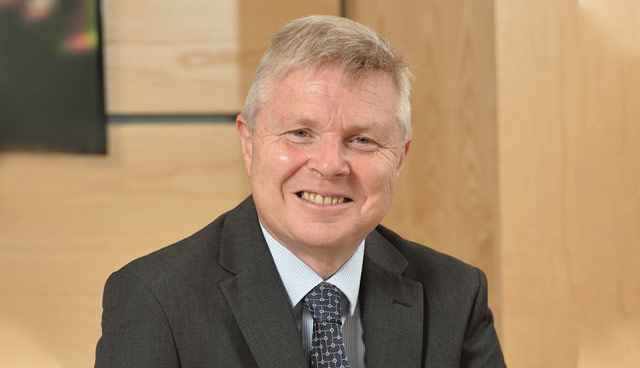
Representatives from the Department for the Economy, including Permanent Secretary Noel Lavery recently gave evidence to the Northern Ireland Affairs Committee’s inquiry into tourism in Northern Ireland, discussing a range of issues including the skills gap, the marketing of Northern Ireland abroad and Brexit.
Proposals by the UK’s Migration Advisory Committee to make a £30,000 minimum annual salary a requirement for a UK work visa post-Brexit is a “concern” for the Department for the Economy, according to Permanent Secretary Noel Lavery.
Lavery was giving oral evidence to the Northern Ireland Affairs Select Committee on the Department’s involvement in the tourism sector and said that the approach taken by the “Migration Advisory Committee and the £30,000 limit will have a significant impact, if implemented”, adding that there is “no shortage occupation list in the tourism industry and a number of others”.
Lavery’s comments followed evidence submitted by the Department to the inquiry showing that of the estimated 64,900 employees currently employed in tourism and hospitality related industries in Northern Ireland, it is estimated that migrant workers account for circa 20 per cent of the workforce.
The Department’s evidence highlighted a history of difficulty experienced by the industry in attracting and retaining employees, in part due to an image of the industry “being one which offers low pay and limited career prospects”.
Skills shortages and increased dependence on the recruitment of labour from outside of Northern Ireland, is “likely to be exacerbated” following Brexit, given the industry’s dependency on accessing labour from economies within the EU.
Giving evidence alongside the Permanent Secretary, Eugene Rooney, Deputy Secretary at the Department confirmed the existing skills gap and said that the Department are looking to support the industry through relevant training and skills programmes.
“Belfast Met College has been identified as a curriculum hub by the Department, which means it will work with the other five colleges in looking at how best to meet the skills of the tourism and hospitality industry, in terms of the type of subjects and training that participants will need. We have an apprenticeship programme, which we are strongly promoting to get training. We pay for the training of participants, particularly young participants, which we will support so they can get jobs in the industry,” he said.
Rooney also said that the Department was working with Invest NI on the potential for a collaborative network of industry stakeholders with a focus on addressing careers and skills issue.
Maximising the promotion of the sector is one of the key priorities that the sector has identified, so promoting the sector as a career is probably the priority issue,” he said. “Then enhancing and getting the relevant skills through training programmes is another key priority for the sector. We are doing that.”
Lavery discussed wider Brexit concerns and in particular, concerns around a no deal outcome. Describing the current governance in Northern Ireland in the absence of Executive ministers as “care and maintenance plus” and “no way to run a country”, he adds: “There are concerns about no deal. An HMT or UK Government study talks about a 9.1 per cent fall in GDP, from where we would be. That is clearly a concern. Tourism is a big market. Coming up to March and April, I spent a lot of my time, unfortunately, in no deal planning meetings.”
Highlighting the Oxford Economics findings that tourism turnover could be some 2 per cent lower post-Brexit, he adds: “Consumers need certainty to come and spend their money, and we need to guard against loss.
“We need people to be able, and they will and should be able, to travel freely up and down from Belfast to Dublin. What is that about? It is about not having any barriers and being hassle-free. That is the message that we need to get across.”
Tourism Ireland
Prior to Lavery’s evidence, some controversy emerged from the inquiry after DUP MP Ian Paisley suggested that Tourism Ireland, the body responsible for marketing the island of Ireland as a holiday destination, gives preference to the promotion of the Republic of Ireland over Northern Ireland. Chief Executive of Tourism Ireland, Niall Gibbons, strongly rejected the claims.
Paisley raised the issue again with Lavery asking: “Do you feel that Northern Ireland gets a fair bang for its buck from what it puts into Tourism Ireland?”
We need people to be able, and they will and should be able, to travel freely up and down from Belfast to Dublin. What is that about? It is about not having any barriers and being hassle-free. That is the message that we need to get across.
— Noel Lavery, DfE Permanent Secretary
In response, the Permanent Secretary said: “I do, actually. If you look at the stats, in the markets that Tourism Ireland is responsible for, revenue has doubled in the last 10 years. Visitor numbers are up 54 per cent. Is that a good return for our investment? Too right it is; it is a one-in-48 return or something like that. That does not mean we should rest on our laurels in any way.”
He added: “Look at how the island of Ireland is ranked third out of 136 countries for effectiveness at marketing and branding. We are hitting 23 markets.”
Quizzed on whether ambitions to grow tourism in Northern Ireland through, amongst other things, the creation of a ‘single-brand identity’, could put Northern Ireland in direct competition and make Tourism Ireland’s job more complicated, Geraldine Fee, Assistant Secretary, Department for the Economy, replied: “It is recognised that it will both complement and compete with the other brand identities in Ireland. We hear from the tourism professionals that having a stand-out for Northern Ireland in the international markets is important.
“A lot of progress has been made within the wider island of Ireland marketing by capturing products that are already there and brigading them under the Wild Atlantic Way, for example. We need that for Northern Ireland. We need something to stand out within the island of Ireland that says, ‘this is the essence; this is what you can expect when you come to Northern Ireland’.
“We also hear from local suppliers and tourism professionals that that will enable them to brigade their efforts under a single banner. Yes, it is recognised that we will be competing with other brands on the island of Ireland, but we are competing worldwide anyway.”


